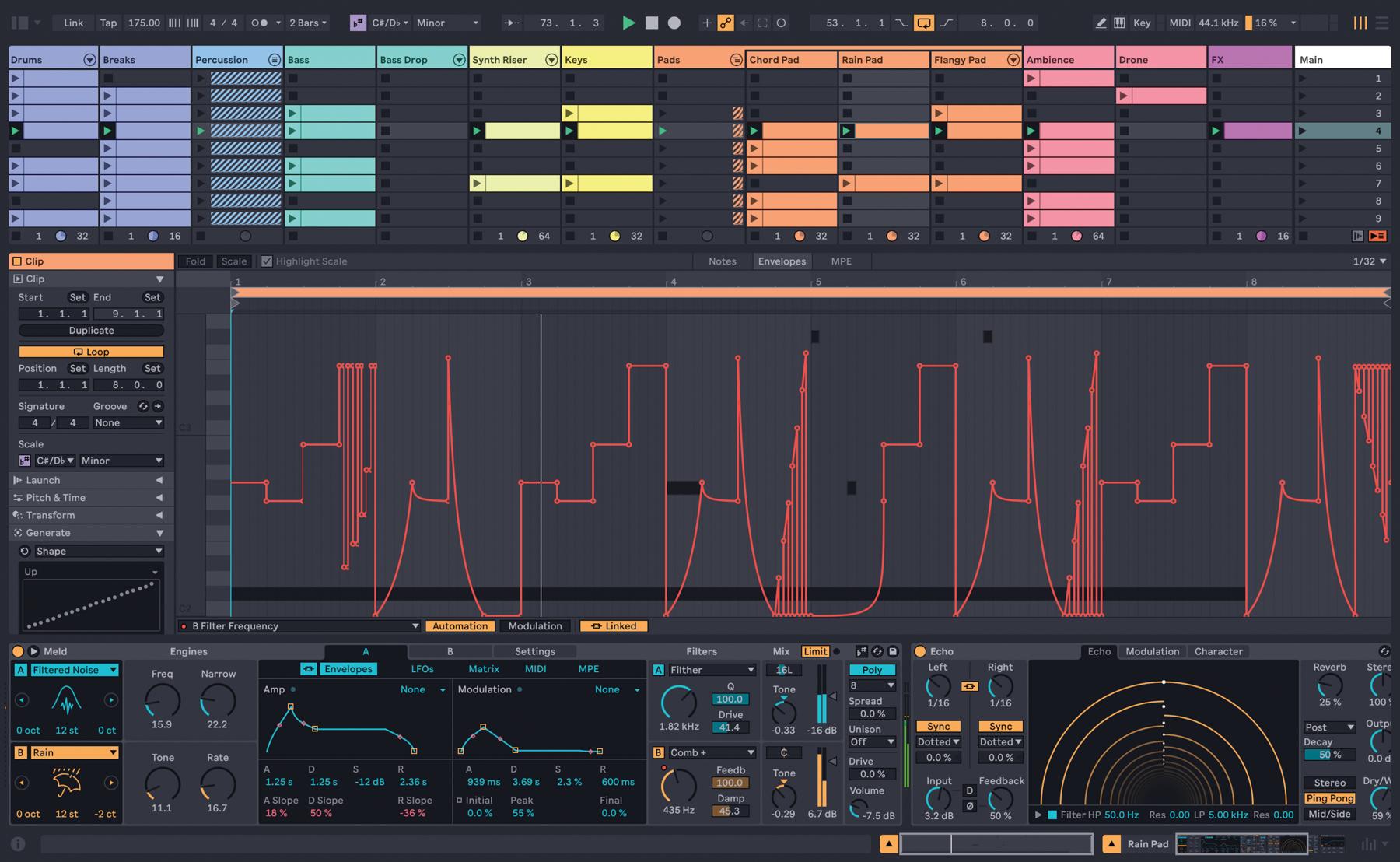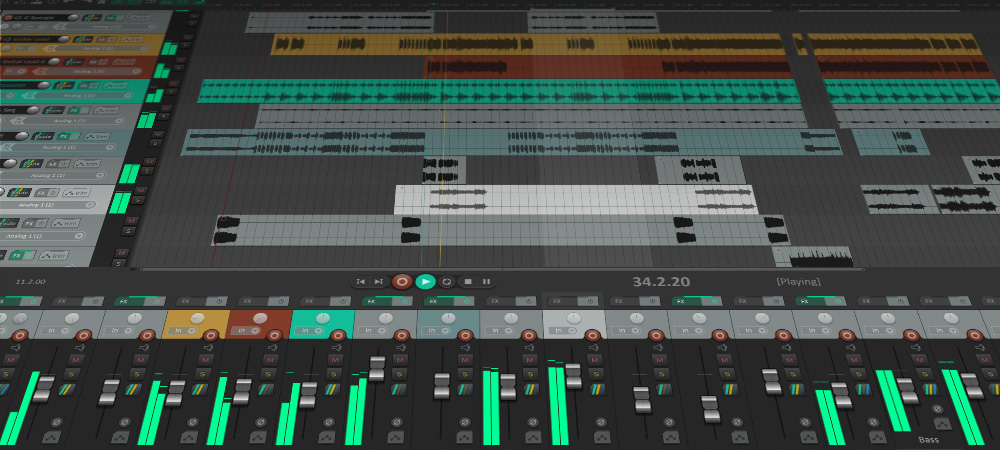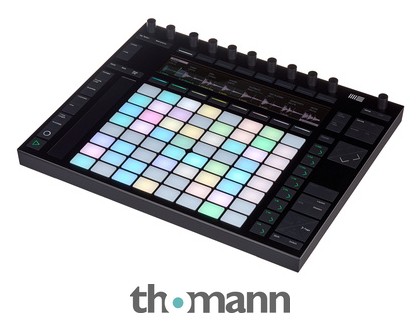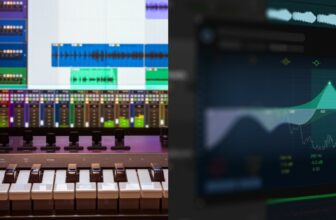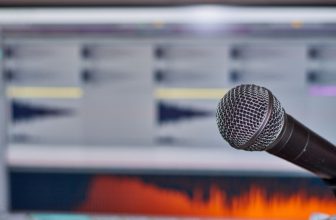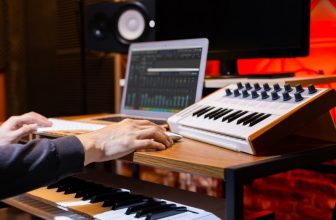Ableton Live vs Reaper – Which is Better? (2024)
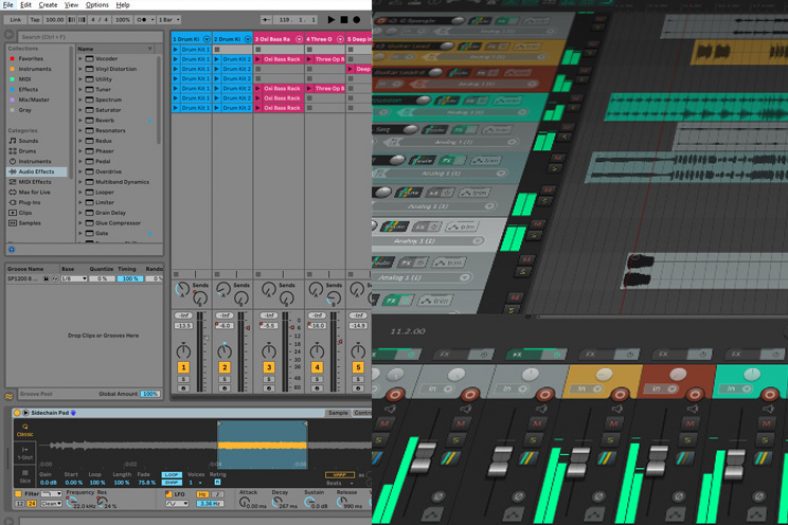
Ableton Live and Reaper are both powerful and popular DAWs. As the no 1 choice for live performances with a modern grid-based layout, Ableton is great for working with MIDI and audio clips. Reaper is more of a traditional DAW, shining with its intuitive design, CPU efficiency, and affordable price.
What really matters is how these two DAWs are very different from each other in terms of accessibility, functionality, and user experience.
Contents
Major Differences
- Ableton Live’s session view is very well suited to live performances, whereas Reaper doesn’t have this type of functionality out of the box.
- Reaper has a powerful scripting engine for coding any desired improvement in EEl, Python, or Lua. Ableton doesn’t have any.
- Reaper features a powerful ReaScript scripting engine that allows you to code any improvement you want in Python, EEL, or Lua, whereas Ableton doesn’t have a scripting engine.
- Reaper is very CPU efficient. Ableton Live 12 has come under some criticism for being relatively heavy on CPU.
- Ableton Live supports Mac and Windows, while Reaper supports Mac, Windows, and Linux.
- Ableton Live has great dedicated MIDI Controllers (such as Ableton Push and AKAI APC40), whereas Reaper works more like a traditional DAW.
- Ableton Live is great for sound design and arrangement, whereas Reaper is more suited to recording and mixing.
- Reaper’s has only one version, whereas Ableton Live comes in 3 main versions. Reaper has a very affordable license when used for personal use. However, it’s more expensive when used commercially.
- Ableton offers amazing stock plugins and far more sounds and samples than Reaper. So, it’s easier to start designing sounds and making music immediately with Ableton Live.
- Reaper is very light and takes up very little space on your computer.
- Reaper can load 32-bit plugins in it’s 64-bit version (using Bridging)
- Ableton Live has Max for Live, a great way to get into deep synthesis, and you can even design your own devices.
Ableton Live was developed by Ableton and first released in 2001, and the current, latest version is Ableton Live 12. Reaper, on the other hand, was developed by Cockos, and the first commercial release was in 2005.
Interface & Workflow
Ableton Live is unique because it has not one but two different views. The session view and the arrangement view. While the arrangement view is the traditional horizontal visual interface, the session view uses a unique clip-based interface designed to be triggered for live performance or to aid in composing and arranging the structure of your music. You can also toggle between the two using the ‘tab’ key on your Mac or Windows computer.
Reaper has a more conventional horizontal interface. But this is perhaps not such a bad thing because it is a lot easier to understand if you have previously worked on any other DAW. For more traditional recording sessions, Reaper has a more intuitive workflow and interface that most people are already familiar with from other DAWs.
You can check the videos to see both DAWs in action.
Regarding workflow, Ableton Live allows you to jam on your music and work out kinks in the session before you decide to record. This can be especially helpful during writer’s block. However, Reaper might be a better bet if you already know what you are looking for and need a simple, no-frills DAW to record.
Customizing Your DAW
Ableton Live does not offer much in terms of customizing your screen. At best, you can change your appearance by picking out a skin that fits you best. You can go to ‘Preferences’ under the ‘Live’ menu and change the theme under the ‘Look/Feel’ window.
One of the highlights of Ableton Live is definitely Max for Live. This tool is helpful for granular and modular synth enthusiasts who want infinite customization in their sound.
Reaper, on the other hand, is known for its endless customization options. You can customize your menus and toolbars by going to the ‘Options’ menu from the main window and then selecting ‘Customise menu/toolbars’ to add elements you want access to and the order you want them in. Having such a simple but integral function can affect your productivity and workflow.
Take a look at the video to see a glimpse of customization possibilities in Reaper.
Sometimes, it’s easy to forget keyboard shortcuts; this can be a helpful tool on Reaper.
Using MIDI Controllers
Almost all MIDI controllers are compatible with most DAWs these days. Users recommend Arturia, Nektar, or Akai controllers for Reaper, which also work on Ableton Live.
Ableton Push 2 is a dedicated controller for Ableton Live and integrates seamlessly with the DAW since it was built by Ableton. The Push has received great reviews from users for its functionality, not just for live performance but also as an incredibly handy instrument for recordings. If you buy a Push 2 (the latest version), then you get a discounted price on Ableton 12 Intro, Standard, and Suite.
Ableton Push 2
What’s Good For Which Genre?
Since Reaper is a more traditional DAW, it is incredibly versatile and good for any genre if you are looking for something you want to record.
Ableton Live, on the other hand, is known for the advantage it gives to electronic musicians and music producers. From the stock synth and drum sounds to the level of detail you can achieve by tweaking them, Ableton Live has many plugins that emulate analog machines, and you have endless sonic and tonal options. You can also use Max for Live to build and design your own custom effects, drum racks, and arpeggiators.
Performance
Ableton Live was designed for live performances as much as for recordings. The 12th release of Ableton Live has gotten some negative press about being a bit CPU intensive; this may vary based on your setup.
Running a lot of plugins or VSTs can take a toll on your computer and cause distortions when playing sounds. This means that you need to have an extremely powerful computer if you are planning to use it live and run many VSTs simultaneously. A good way to avoid this, however, is to resample your tracks to audio in case you are running something generative and, of course, increase the buffer size if you are only playing back sounds.
Reaper has a stellar reputation for being CPU-friendly and is known for being reliable and not crashing often. You can record multiple tracks without worrying about a program crash during a recording session. If your computer and audio interface allow it, you can easily record a band with a live drum kit. This is not a flex that many DAWs can proudly claim.
Pricing
Reaper is not a free DAW (despite what you might read online!). It only comes in one version but has a relative license if you’re using it for personal or educational use. But they charge higher for a commercial license.
Ableton Live comes in 3 main versions; the Suite Version is the most expensive and comes with all features (There is also a very scaled-down version with many limitations, known as Ableton Live Lite, which comes free with some) Ableton also offers an education discount on all the Ableton Live versions. This can be very helpful if you are a student or a teacher.
Plugin Compatibility
VSTs are compatible with both Reaper and Ableton Live. AU plugins are compatible with the Mac version of Ableton Live. The Ableton Live stock plugins that come as part of the DAW are also absolutely amazing and serve as a big advantage for this DAW.
If your plugin is 32-bit, it will not be compatible with Ableton Live 12. You can download the 32-bit version of Reaper (read our articles on 32-bit and 64-bit plugins).
Conclusion
Ableton Live is an amazing DAW that works for both live and studio use, and it’s known for constantly making upgrades and fixes to its software. Reaper, too, is very reliable and known to users enjoy its efficiency in design and operation.
If you are looking for a DAW to double as a performance tool, then you should definitely get Ableton Live. But it is not particularly cheap, especially for their highest “Live Suite” version. Reaper, on the other hand, is more affordable. You should consider getting it if you are looking for a solid DAW for recording purposes.

